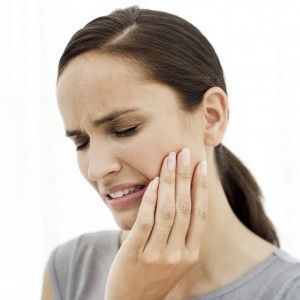TMJ Disorders
TMJ (temporomandibular joint) disorders are a family of problems related to your jaw joint—the joint between your lower and upper jaws. If you have had symptoms like pain or a “clicking” sound, you may have TMJ disorder.
TMJ problems have three main causes. One can be trauma to the joint—a car accident, a blow to the jaw, or a difficult wisdom tooth extraction. Another cause can be improper alignment of your teeth. A third cause could be arthritis.
Symptoms of TMJ disorder:
- A clicking sound in your jaw
- Headaches
- Tinnitus (ringing in the ears)
- Limitation of opening of the jaw
- Inability to completely close your mouth
- Other facial pain
- Nighttime teeth grinding
- Severe tooth wear
TMJ disorder requires careful diagnosis, and the treatment can be quite simple or very complex. No one treatment can completely resolve TMJ disorders, and a combination of approaches may be necessary. Dr. Bruce is thoroughly trained in treating TMJ problems, so be sure to give us a call if you have any of the above symptoms.
Trouble with Your Jaw
The temporomandibular joint is complex, and you can develop any of a number of problems with it. Sometimes the problem is muscle stress or spasm. Sometimes there is injury to the disk between the lower jaw and your skull. There may also be injury to the ligaments that hold the jaw together. The disk can slip out of position. There can be deterioration of the surfaces of the joint. Whatever the cause, the results may include a misaligned bite, pain, clicking or grating noise when you open your mouth or trouble opening your mouth wide.
Do You Have a TMJ Disorder?
- Does your jaw click, pop, grate, catch, or lock when you open your mouth? Does your jaw click, pop, grate, catch, or lock when you open your mouth?
- Are you aware of grinding or clenching your teeth?
- Do you wake up with sore, stiff muscles in your head or face?
- Do you have frequent headaches or neck aches?
- Do you have pain when you clench your teeth?
- Does stress make your clenching and pain worse?
- Are your teeth wearing down?
- Is it difficult or painful to open your mouth, eat or yawn?
- Have you ever injured your neck, head or jaws?
- Have you had problems (such as arthritis) with other joints?
- Do you have teeth that no longer line up correctly when you bite?
- Do your teeth meet together differently from time to time?
- Is it hard to bite food with your front teeth?
If you answered “yes” to any of these questions, you may have TMJ disorder.

Treatment
There are various treatment options that Dr. Bruce can utilize for TMJ disorder. The first step, though, is a careful evaluation of your problem. The temporo-mandibular joint is complex, and there are any of a number of things that could be wrong. If the treatment doesn’t address your specific problem, it is unlikely to be successful.
The first step in treatment is to relieve your pain, if you are in pain. This can be accomplished with a pain reliever, anti-inflammatory or muscle relaxant. Steroids can be injected directly into the joints to reduce pain and inflammation. Or a temporary appliance to help guide your bite may provide this relief.
Dr. Bruce may also recommend some self-care treatments that may include:
- Resting your jaw
- Keeping your teeth apart when you are not swallowing or eating
- Eating soft foods
- Heat and cold treatments
- In some cases, jaw exercises
- Good posture
Stress management techniques such as biofeedback or physical therapy may also be recommended, as well as a temporary, clear plastic appliance known as a splint or a nightguard. This appliance fits over either your upper or lower teeth and helps keep your teeth apart. This can relax your jaw muscles.
There are different types of appliances used for different purposes. A nightguard helps you stop clenching or grinding your teeth and reduces muscle tension at night. It also protects your teeth from wear and helps to protect the cartilage and joint surfaces. An anterior positioning appliance moves your jaw forward, relieves pressure on parts of your jaw and can be used as an aid to help reposition your disk. It may need to be worn all day and night, or it may need to be worn only at night, depending on the seriousness of your case.
Other treatments
If appliances don’t correct your problems, other treatments may be necessary. Sometimes your bite needs to be adjusted so that your teeth fit together more harmoniously. This can be done with minor adjustments called an equilibration, or it may require complete overhaul of your bite (full mouth reconstruction).
In cases where the jaw can’t open, is dislocated, has severe degeneration, or the patient has undergone appliance treatment unsuccessfully, surgery may be required. Dr. Bruce will only advise TMJ surgery as a last resort.